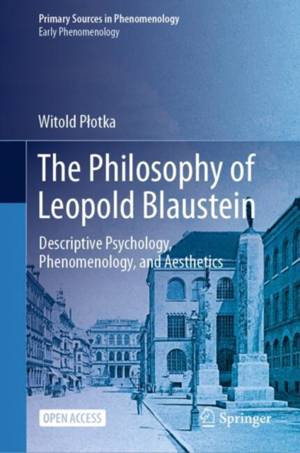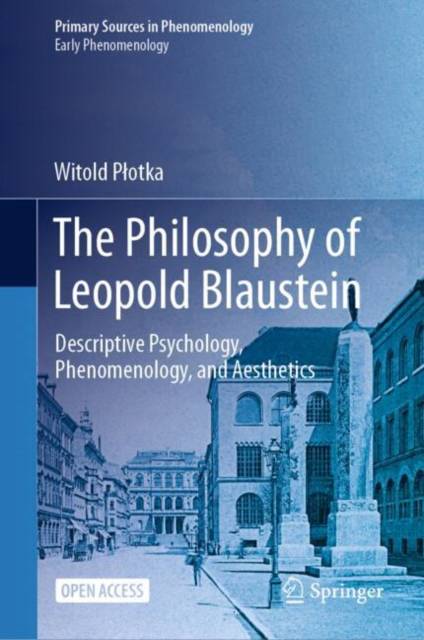
- Afhalen na 1 uur in een winkel met voorraad
- Gratis thuislevering in België vanaf € 30
- Ruim aanbod met 7 miljoen producten
- Afhalen na 1 uur in een winkel met voorraad
- Gratis thuislevering in België vanaf € 30
- Ruim aanbod met 7 miljoen producten
The Philosophy of Leopold Blaustein
Descriptive Psychology, Phenomenology, and Aesthetics
Witold PlotkaOmschrijving
This is an open-access book which is devoted to rediscovering the early history of phenomenology in confrontation with the legacy of Franz Brentano by discussing Leopold Blaustein's philosophy. It offers a unique perspective on the history of the phenomenological movement by presenting the development of Blaustein's theory. Blaustein was a philosopher educated by Kazimierz Twardowski in Lvov, but he also held research stays in Freiburg im Breisgau (where he studied under Edmund Husserl) and in Berlin (where he met Carl Stumpf). Blaustein's work is usually classified as phenomenology yet some scholars question this by claiming that Blaustein was radically critical of Husserl's phenomenology. This text addresses these divergent opinions by claiming that Blaustein was both a descriptive psychologist and a phenomenologist. Moreover, the book shows that these two motives were intertwined in Blaustein's writings and require a reference to other traditions such as the Gestalt theory of Stumpf, and the humanistic psychology of Dilthey. This volume examines sources, context, and applications of the methods used by Blaustein in his original philosophy. It appeals to philosophers, especially phenomenologists, epistemologies, and historians. The more specialized chapters are also relevant to historians of the phenomenological movement and the Brentanian tradition.
Specificaties
Betrokkenen
- Auteur(s):
- Uitgeverij:
Inhoud
- Aantal bladzijden:
- 325
- Taal:
- Engels
- Reeks:
Eigenschappen
- Productcode (EAN):
- 9783031636844
- Verschijningsdatum:
- 20/09/2024
- Uitvoering:
- Hardcover
- Formaat:
- Genaaid
- Afmetingen:
- 156 mm x 234 mm
- Gewicht:
- 644 g

Alleen bij Standaard Boekhandel
Beoordelingen
We publiceren alleen reviews die voldoen aan de voorwaarden voor reviews. Bekijk onze voorwaarden voor reviews.









